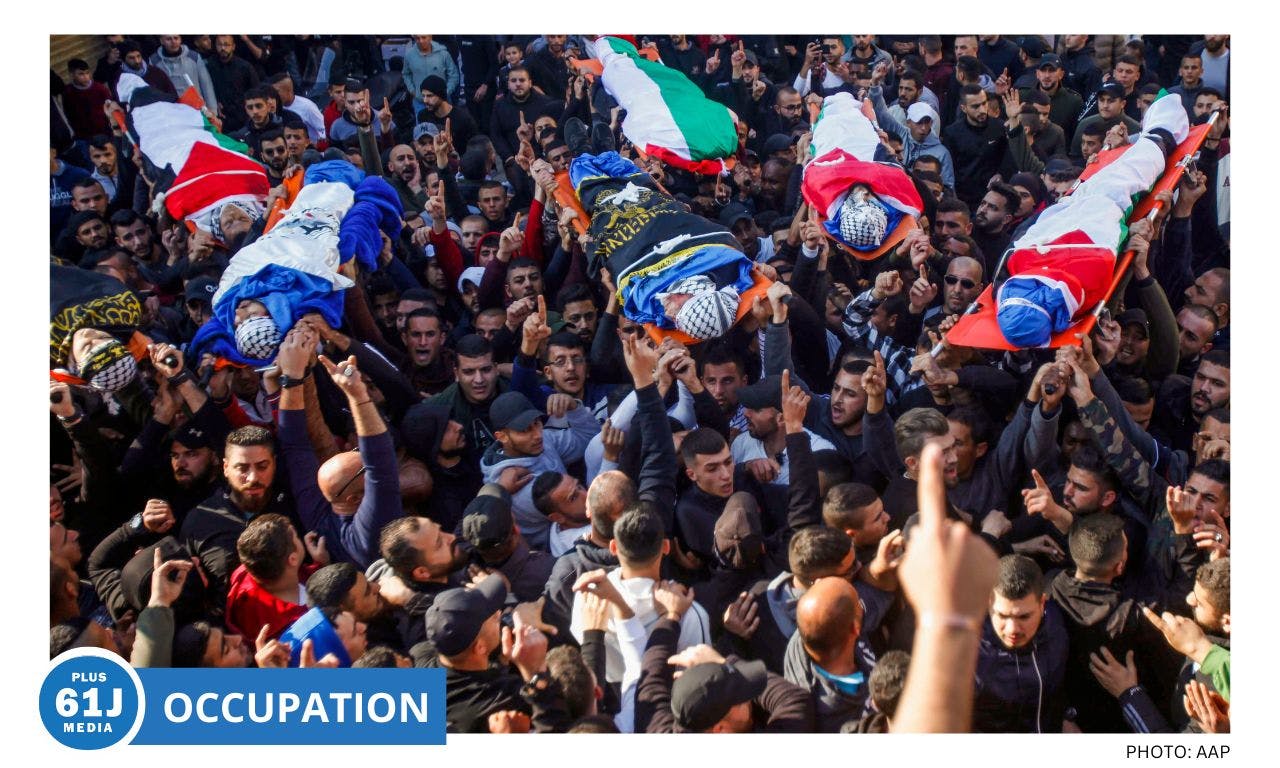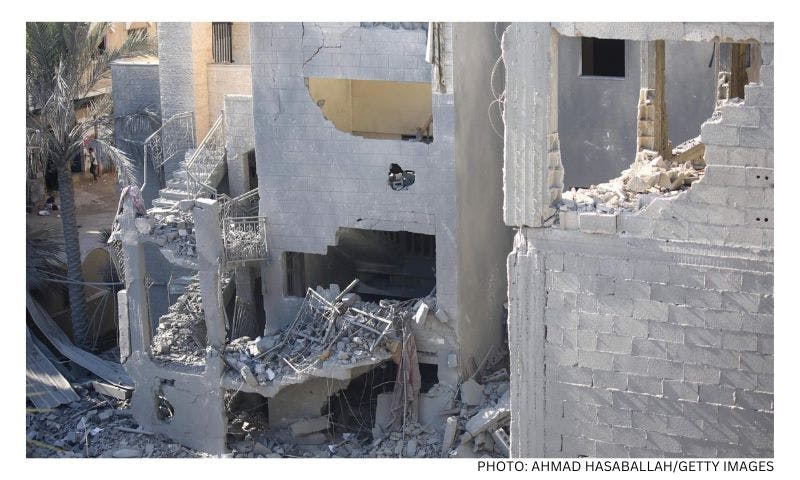Published: 28 January 2021
Last updated: 4 March 2024
ANYONE WHO LIVED THROUGH the second intifada in Israel from 2000-05 can attest to the toll it took. The endless suicide bombings; the fear of going to cafes; the knowledge that someone you knew had either been killed or injured in an attack because the country is so damn small.
As an editor at the Jerusalem Post, it was my job to cover these attacks. That was until fate and G-d placed me in the midst of the terror attack in Mombasa on November 28, 2002. What was supposed to be a relaxing foreign assignment — a week-long junket to write about a Kenyan safari — never happened.
Within minutes of arriving at the Paradise Hotel, that idyllic world was blown apart forever. Three al-Qaeda suicide bombers drove into the lobby of the hotel, killing three Israelis, nine Kenyans, and wounding scores of others.
The Paradise Hotel was one of several in Mombasa designed for Israelis. All the food was kosher, there was even a small synagogue with a sefer Torah. It was a popular week-long destination and every week a chartered Arkia Airlines flight took close to 300 Israelis to Mombasa.
Two weeks before my departure with six other journalists from around the country, I chatted at length with our tour guide, Albert de Havila, a softly spoken 60-year-old Israeli with a shock of white hair. He was kind and patiently answered all my questions. He had been doing these flights every few weeks for years. During our flight, we also met Albert’s daughter, who had decided to come along.
We were met at the airport by our Kenyan guide, who had taken on the Hebrew name of Aaron. We had our own bus but just as we were about to leave, a couple with three young children came running up. The other buses were full. Could they join us? “Of course,” we said.
And so, Rahamim and Ora Anter, their sons Dvir, 14, Noy, 12, and their daughter, Adva, 8, clambered onto the bus. The boys were so excited. They sat up front with Albert, peppering him with questions. Adva and Ora sat in the seat in front of me. Adva kept asking “Are we there yet?” until she finally fell asleep, her tiny head bobbing gently on her mother’s shoulder.
[gallery columns="1" size="large" ids="40741"]
At the hotel, we were greeted in the lobby by dozens of young Kenyan dancers twirling and foot stomping and clapping. Others beat out a welcome on their hand-held drums. Birds chirped overhead on the thatched roofs and along the walkway that led down to the pristine beach.
Albert told us to leave our suitcases and head down the walkway to the outdoor dining room for breakfast.
Ten minutes into our meal Albert said he was going to check if the lobby had cleared out a little. We stood up. I remember the distinct sound of the scraping of my chair. “We’ll come with you,” we said. “No, no,” he replied. “Sit. Relax. I’ll go.”
And so he went. But he never returned. Albert saved our lives. Moments later, he was in the lobby when the bombers drove into the hotel. I remember a loud boom. We thought a gas tank had exploded. And then there was an interminable silence and the world stopped moving. Or seemed to.
I vaguely wondered where the birds had gone. And then came the black ash from the thatched roofs, falling from the sky. Followed by a cacophony of chaos. People were running, bleeding, screaming Pigua! Pigua! Terror attack!
Later, we’d learn that this was a co-ordinated attack. The charter flight that had brought us to Mombasa had been taking home those that had left the hotel. Al-Qaeda terrorists had attempted to shoot it down with RPGs. Mercifully, they missed.
Later, we’d learn that this was a co-ordinated attack. The charter flight that had brought us to Mombasa had been taking home those that had left the hotel. Al-Qaeda terrorists had attempted to shoot it down with RPGs. Mercifully, they missed.
Later, we’d learn that Albert had been killed.
Later, we’d learn that little Adva had wanted to get a drink and had come down to the lobby with her mother and brothers. Ora and Adva were wounded. They survived. Dvir and Noy did not.
At the time, we knew none of this. Everyone was scrambling to call home, before our mobile phones died. The hotel was no more. Just a burning heap of ash. I remember calling my mother and saying, “There’s been a pigua. I’m fine. I have to go.” And I hung up.
In hindsight, that seems almost callous, but the journalist in me had already kicked into high gear. I had to call The Jerusalem Post. My editor, Bret Stephens, told me to write down the Post’s credit card number and get on a plane. ”Anywhere. Just get out,” he said. I had to explain the airport was shut down. There was no way out. We were trapped.
So much confusion. So much chaos. We sat on the beach in the broiling sun for hours, waiting for Israeli officials to arrive from the embassy in Nairobi, which was about 500km away. More chaos ensued as they tried to find a hotel that would take us in.
Nobody wanted us. Everyone was scared. They knew we had been targeted: as Israelis, as Jews, as enemies. Finally, one hotel agreed to take us and the Kenyan army escorted us on buses, rifles slung across their shoulders.
At the hotel, phones charged, my editor told me that as I was the only English-speaking journalist there, scores of news outlets around the world wanted to interview me. Could I do it? I said I would try but I wasn’t sure how much longer I could keep myself together. I told him I would not talk about who had died, because Albert’s daughter had not yet been able to reach her mother.
I spent hours doing interviews. A dear friend in Australia later told me she almost ran off the road after hearing me being interviewed on ABC radio.
This, I thought, as a burly young soldier handed me a sandwich and sat next to me the entire flight home, is what it must have felt like when the hostages were rescued from Entebbe.
Around 2am the hotel manager kicked us out, having determined we were too much of a risk. But we had learned that the Israeli Air Force was coming to rescue us. We sat by the side of the road until dawn, when buses came to take us to the airport.
When I saw those young Israeli soldiers and the Hercules Air Force planes, I finally broke down and sobbed with relief. We didn’t care that the seats were little more than rope benches, or that we had to stuff toilet paper in our ears because the planes were so loud. Or that it would be a nine-hour flight home.
This, I thought, as a burly young soldier handed me a sandwich and sat next to me the entire flight home, is what it must have felt like when the hostages were rescued from Entebbe.
But it also was a stark reminder that when the chips are down, the only people who will save us are our own. Without Israel’s effort, who knows when we would have been able to leave Kenya?
In that terror-filled 24-hour period, I thought, this what it must have felt like when doors were slamming all around the world to Jews during the Holocaust.
Landing back in Israel and having my family meet me and hug me was overwhelming. I was home. I was safe. But within 24 hours I was completely disconnected from the world. The tiniest noise would send my mind back to the terror of that day: someone in the office raising their voice; the unexpected shrill ringing of my phone; a car alarm; an ambulance outside, and I’d find myself curled up in the fetal position under my desk, in a bathroom, on the floor, shaking and sobbing uncontrollably.
It became more and more difficult to go into the office. It reached the point where I could no longer leave my house. Being in an enclosed space with a group of people terrified me. The fear that I would be trapped consumed me. I stopped going into the office. I stopped going to shul. I stopped going anywhere.
Prior to Kenya, like many Israelis, I had learned to adapt to the endless suicide bombings. I was fatalistic. My greatest fear had not been dying but living with terrible injuries. Now, the threat of death was all around me and it sliced my psyche to ribbons. I no longer had the professional detachment required to do my job.
Without my weekly trauma counselling sessions at Hadassah Ein Kerem hospital, I would have required a straightjacket. I couldn’t fathom that I had been “just fine” and functional during the attack yet now I was traumatised. My therapist said I had not been “fine.” I had chosen “fight” rather than “flight” mode in the immediate aftermath and now I had to learn to deal with the fallout. It was a slow, difficult and painful journey.
[gallery columns="1" size="large" ids="40742"]
AFTER A YEAR OF INTENSIVE counselling, my therapist presented me with a chart that showed my ever-decreasing depression levels, Post Traumatic Stress Disorder levels, and my cognitive capacities concerning the entire event.
And I was shocked at how traumatised I was, particularly when I realised that I was lucky enough to escape the attack physically unscathed. I was told that if I were to stay in my job, I would be retraumatised.
So I moved to Los Angeles, because I felt I had to go somewhere where the news didn’t matter; where the most difficult question I would ask would be of celebrities: “Which designer are you wearing?”
And every year, when I light yahrzeit candles for Albert and Dvir and Noy, I continue to reflect on the long, winding tentacles of trauma and terror. Especially in Israel. It is a traumatised nation, with so many who have either been wounded or have lost loved ones to terror.
And then there are the silent statistics. The ones who were there but walked away physically intact. I know what they know because I’m one of them. And there are thousands of us walking the streets.
And I know what it’s like to be truly scared. To jump every time you hear a car door slam. To wake up in the middle of the night sweat-soaked and crying uncontrollably. To fear that every time you walk out the front door it might be the last time you do so. To rail against G-d.
To be wracked with guilt; with questions of having lived when others died; to feel you must justify why you still have the privilege – and yes, it is a privilege – to walk the streets every day.
And I know what evil looks like. It has a face. I’ve seen it up close and personal in the victims of that al-Qaeda attack.
Those fears do subside. They never disappear, but most of the time they become controllable. You learn to live with the terrible, heartbreaking memory of it all.
But I also know, just as those charts showed me, those fears do subside. They never disappear, but most of the time they become controllable. You learn to live with the terrible, heartbreaking memory of it all. You learn to live with the horror, rather than relive it every single moment of every single day.
There are still so many lessons to learn from being in a terror attack. And I’m learning new ones every day. Here’s what I’ve learned so far:
I’m stronger than I think. Prior to Kenya, if anyone had told me that I, who passes out at the sight of my own blood, would take the shirt off my back to bandage a gaping hole in the arm of a wounded teenager, or that I would wipe ash, blood, and flesh off shaken children, or do a live radio interview moments after being informed my guide had been killed, I would have said, “Sorry, you’ve got the wrong person.”
I’ve learned that I have a level of empathy that others don’t have. I don’t relish how I got there. But I do embrace it. I have learned that when pure, unadulterated evil reaches out with insidious fingers and threatens to choke you, pure, unadulterated good stands tall alongside it.
The selfless acts of scores of people in Kenya overwhelmed me. I witnessed strangers support each other in ways I would never have thought imaginable. I know that as a result of one 24-hour-period, my life will be inexorably linked to those people whose names I don’t know, and whom I could bump into in the street and not recognise.
I don’t know the names of the couple who gave me a clean T-shirt after my suitcase was blown up. What I do know is that I am only one of those silent statistics. We are everywhere.
One of us may be sitting next to you right now.
I have been scarred by the experience, but I have also been blessed.
Blessed with being granted the opportunity to live another day when so many others haven’t. Blessed with the knowledge that I can face so much more than I thought was possible. And blessed with a level of empathy and compassion that can only help make our lives stronger.
These traits are required to fight terrorism, and evil, wherever they may rear their ugly head.
To stand upright, alongside our greatest fears and greatest enemies, and to risk the chance of being bloodied, and broken.
But never bowed.
Photo Kenyan Red Cross volunteers carry the bodies of the victims of the Paradise Hotel bomb blast in Mombasa in 2002 (AFP)




